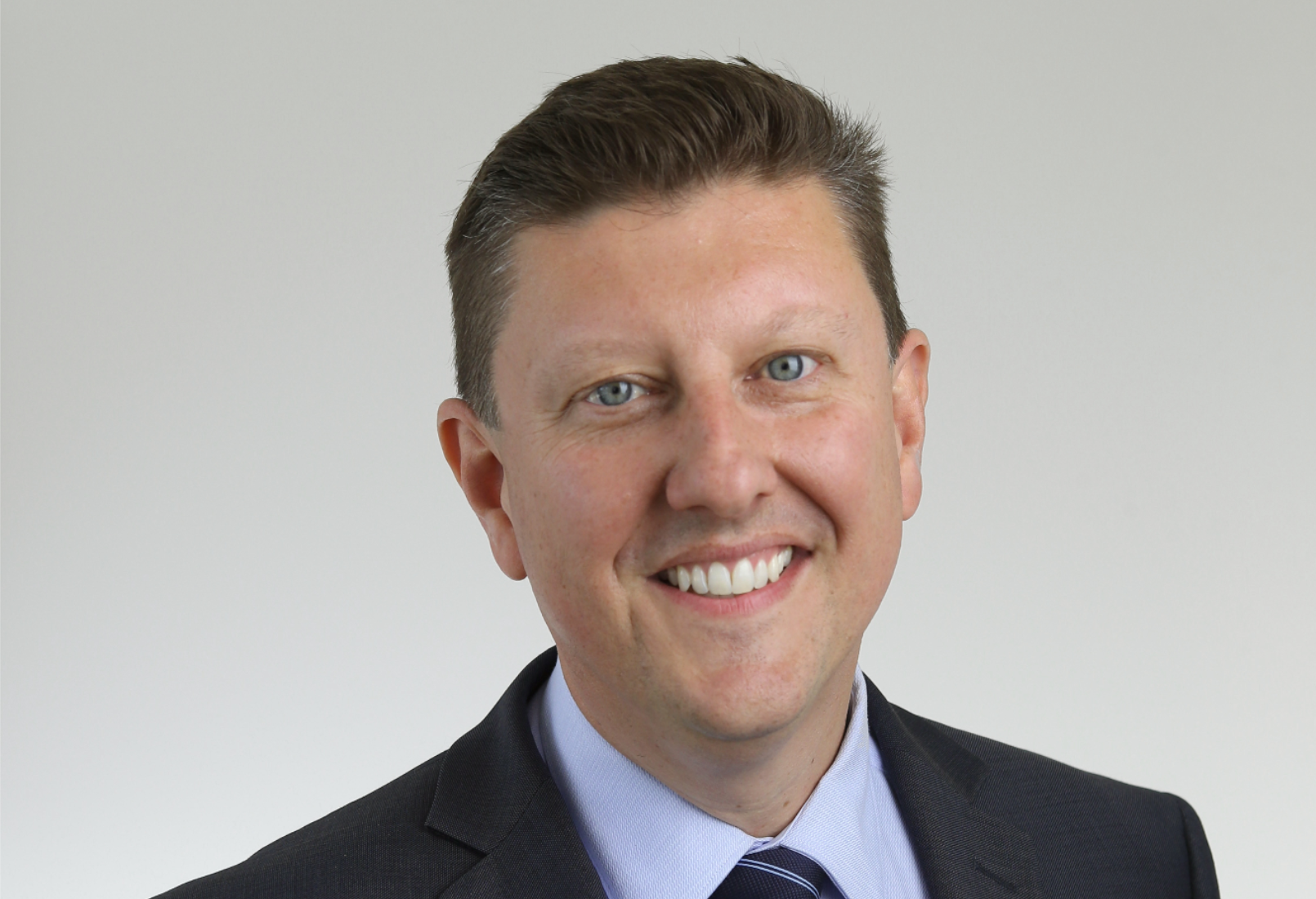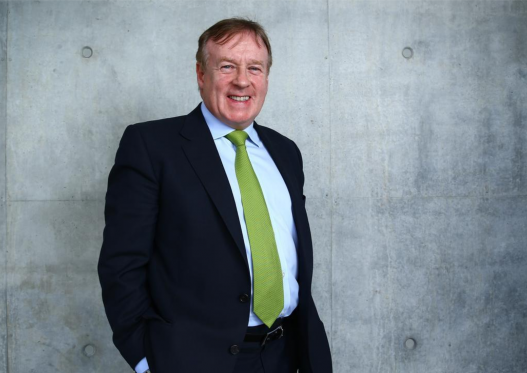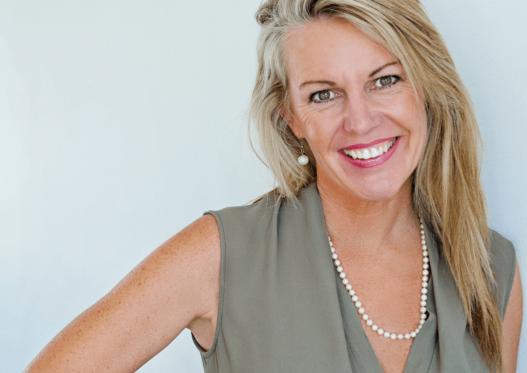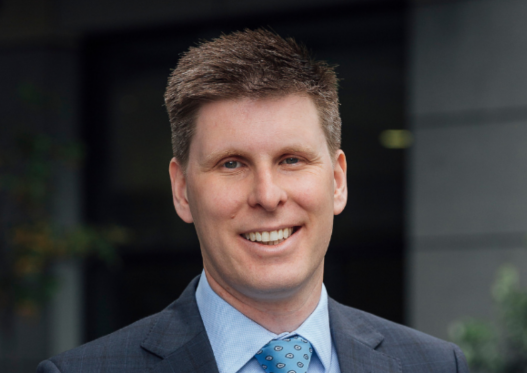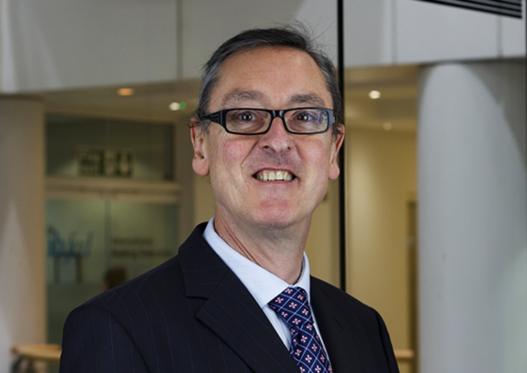When FINSIA Fellow Geoff Wearne embarked on the world of work in the late 1980s, thousands of teenagers finishing high school across the country were part of the annual intake across the banking sector - including the Commonwealth Bank of Australia.
After graduating Year 12 and successfully passing the required entrance exams in Mathematics, English and accuracy, people like Geoff took up junior branch and head office roles at the then government-owned bank.
Unlike many of his contemporaries and many more in banking and financial services during the past three decades, Geoff is still with the same employer – having spent almost 33 years with CBA.
While he’s enjoyed many diverse roles across the bank - including the Country Head and Head of the CBA Institutional Banking business in New Zealand, and his current position as Executive General Manager, Strategic Delivery accountable for overseeing the Bank’s divestment programs - it’s a career path driven by the kind of ambition and attitude towards ongoing education that is at the heart of FINSIA’s professionalism strategy.
“When I started at the bank after finishing my HSC in 1988 I also had a part-time job, and started studying Commerce, Accounting, Banking and Finance at TAFE in the evenings,” says Geoff.
“Then I kept studying part-time for over 10 years to ultimately complete my Bachelor of Business at UTS. It was a great opportunity for someone like me who enjoyed studying the theory, putting it into practice, learning fast at work and developing life skills.”
There have been downsides, including one frightening incident when Geoff and 25 colleagues were involved in an armed robbery in 1993.
But Geoff - who has had almost as long as association with FINSIA as CBA, having joined the Australian Institute of Banking and Finance in 1993 - says there have been many more highs than lows.
“Working at CBA has been wonderful for me. I've been fortunate to be given different opportunities every two to five years, and that's kept me fresh,” he said.
“I had the opportunity to move to Auckland to lead the institutional banking team in New Zealand – and represent Commonwealth Bank as the Country Head over there.
“It was a great opportunity working alongside our subsidiary bank, ASB - which is a phenomenal retail and business bank - to bring CBA Institutional capabilities to this market.
“I've also spent time across many other parts of the CBA, supporting initiatives and strategies across banking operations in Indonesia and China.
“And I think all of these opportunities have helped me develop as a leader.”
Conversely, it was the outcome of the APRA Inquiry in 2017 that inspired Geoff on to become a Chartered Banker.
“I spent a couple of years as a senior leader supporting the transformation work developed as part of our response to the APRA Inquiry findings for the Group, which inspired me to undertake the Chartered Banker course,” he said.
“Reflecting on my own career journey over the last 3 decades across business and corporate banking, risk management, transformation and now divestments, and the decisions that I've made historically - or at least supported previously - and asking if are they the right ones in the current context is really important.
“Learning from your successes and failures is also really important. It helps you develop as a person, and certainly as a banking professional, especially when looking forward.
“Various mentors and coaches that I've had over the years always said to me that I should look to do some level of education every two to four years - because the market and operating environment continue to evolve and change.
“In order for you to stay current you need to keep challenging yourself, and continue to learn and develop because the world changes, markets evolve. There’s the pace of change in a competitive landscape for banking, ongoing technology advancements, new regulatory standards, and the new bar for banking professionals in the eyes of our customers.
“Technology, customer insights, support and digital experiences are some of the key elements for how people are selecting banking services.
“There were the old green screens when I started, with the majority of the work being manual processes and paper based. Technology and digitisation has transformed banking - and like so many industries - is something that you have to stay across and continue to learn. That's why I continue to push myself to learn and develop new skills.
“When the Chartered Banker qualification came up as the pinnacle in banking professionalism, a la accounting, and the legal sector where there is a Chartered status, I realised it was what I wanted to achieve.
“I felt that if you're going to lead the way, you'd want to get the top qualification in the sector to test yourself. I think it is the new bar, and that new bar needs to continually be raised. It should be mandatory for people making decisions across the whole sector.
"That’s where I think FINSIA's role is. The more support you get from senior banking leaders across the industry, the more this will help build trust with customers, the community and the next generation of banking professionals.
“Trust can be lost in an instant, but if you train your bankers well it will build sustainable trust.”
Considering the format of the Chartered Banker by Experience course that Geoff completed during the first outbreak of COVID, he said, “The self-reflection statements really work because they make you think and go deep into the past.
“Taking the decisions that were made and approaches you took, and then bringing them into the current day and applying them to current community expectations is a powerful way of focusing on ethical issues.
“When you reflect deeply at historical situations versus how such situations would be viewed in the current context - it’s a very different context, and makes you realise how community expectations and standards have evolved in banking.”
A level of self-reflection is actually a good leadership management tool, Geoff acknowledges. “It’s practical to finish any formal management meeting with your team and ask what worked, what didn't work and how we can improve.
“It provides that level of openness and transparency and collective accountability and it’s resonated with me as a leadership tool.
“It’s so simple, but so powerful if done in an open, transparent way in order to get the best out of your team, or the business you're running, or the programs that you're working with, that's something that makes sense.”



